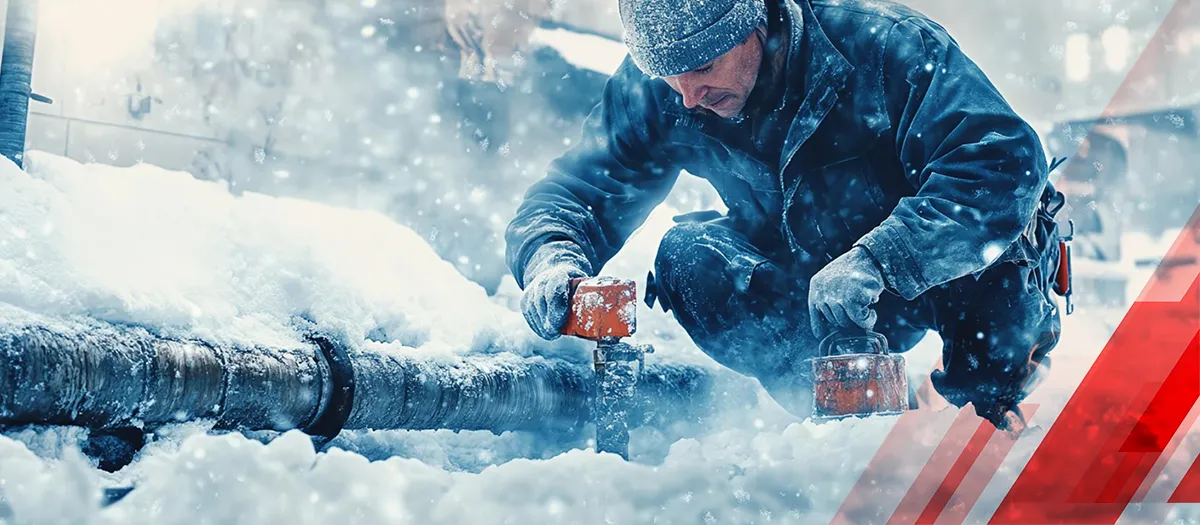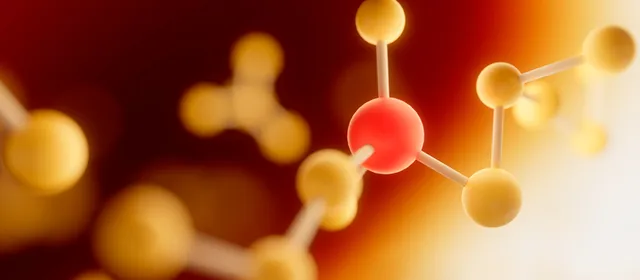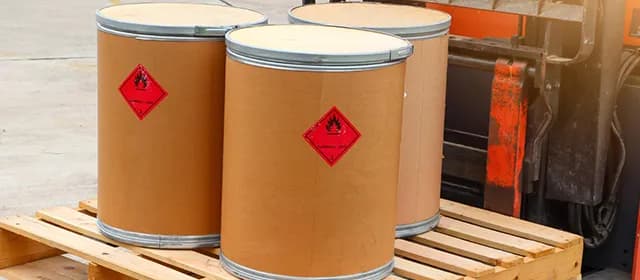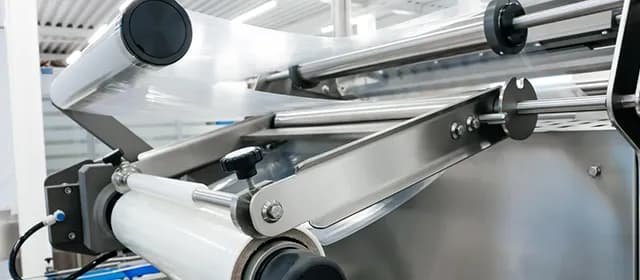Cryogenic insulation is essential for maintaining the temperature of liquefied gases at extremely low temperatures, making it crucial for industries like energy, liquefied natural gas (LNG), and aerospace. These insulation materials help prevent heat transfer, ensuring the efficient storage and transportation of cryogenic fluids.
The cryogenic insulation market is expanding due to growing demand for LNG, increasing use of cryogenic technologies in medical applications, and rising investments in cold chain logistics. Industries are adopting advanced insulation materials, such as foam, fiberglass, and aerogel, to enhance efficiency and reduce energy consumption. Advancements in material science, sustainability, and improved thermal efficiency are further driving market growth. As global energy consumption rises and cryogenic applications continue to expand, the market is expected to experience significant growth in the coming years. Kings Research estimates that the global cryogenic insulation market will reach USD 10.04 billion by 2031.
Top 10 Players in the Cryogenic Insulation Market
1. Armacell
Armacell is a global manufacturer of flexible foam for equipment insulation and a leading provider of engineered foams. In the cryogenic insulation market, Armacell offers products such as ArmaFlex Cryogenic Systems, which are designed to insulate extremely low-temperature pipelines and equipment used in LNG, petrochemical, and industrial gas facilities. These multi-layer systems combine flexible elastomeric foam with load-bearing and vapor barrier materials to minimize heat ingress and prevent condensation. Headquartered in Luxembourg, Armacell has a strong global manufacturing presence, operating more than 20 production sites worldwide across Europe, North America, Asia, and Latin America.
In April 2025, Armacell introduced ArmaGel XGC, a flexible aerogel insulation blanket engineered for cryogenic and dual-temperature applications. Building upon the success of their previous offerings, ArmaGel XGC delivers enhanced thermal performance and superior acoustic attenuation, making it particularly suitable for industries such as oil and gas, petrochemical, and power generation.
2. Lydall, Inc.
Lydall, now part of Unifrax, is known for its advanced thermal and acoustic insulation solutions. It serves the cryogenic insulation market through its Cryotherm insulation, a glass fiber-based blanket used for cryogenic storage tanks, piping, and transport systems. These materials provide low thermal conductivity, mechanical strength, and fire resistance under extreme cold temperatures. Lydall’s solutions are frequently used in LNG, aerospace, and industrial gas sectors. With manufacturing operations in North America, Europe, and Asia, the company has a global footprint supporting major cryogenic equipment manufacturers.
3. BASF SE
BASF is a leading global chemical company with a diversified portfolio, including high-performance polyurethane (PU) systems for insulation. In the cryogenic insulation market, BASF offers Elastopor Cryo and Elastopir, rigid PU foams tailored for cold and cryogenic applications such as LNG tanks and ships. These products provide outstanding insulation performance, dimensional stability, and fire protection properties. BASF’s cryogenic-grade materials are developed to meet international marine and industrial standards. Headquartered in Germany, BASF has production facilities in over 80 countries, enabling global delivery of its cryogenic insulation solutions.
4. Cabot Corporation
Cabot Corporation is a U.S.-based specialty chemicals and performance materials company, offering a key component used in cryogenic insulation—aerogel particles. Cabot’s Lumira aerogel is integrated into cryogenic insulation systems to significantly reduce thermal conductivity while maintaining a thin insulation profile. This is particularly advantageous in space-constrained applications such as subsea pipelines, LNG transport, and aerospace systems. In the cryogenic insulation market, aerogel materials are valued for their thermal efficiency and moisture resistance. Cabot operates manufacturing sites and research facilities in North America, Europe, and Asia, supporting clients across various energy and industrial sectors.
In May 2023, Cabot Corporation introduced ENTERA aerogel particles, a thermal insulation additive designed to develop ultra-thin thermal barriers for electric vehicle (EV) lithium-ion batteries. These particles, comprising over 90% air, are up to 20 times lighter than traditional insulation materials, enhancing vehicle efficiency and battery lifespan.
5. Röchling
Röchling Industrial offers a broad range of plastic-based materials for thermal insulation in harsh environments. In the cryogenic insulation market, Röchling supplies Durostone and other fiber-reinforced composite materials that maintain mechanical integrity at extremely low temperatures. These are often used in structural supports and insulation spacers in cryogenic tanks and piping systems. Röchling’s materials resist brittleness and thermal bridging, which are common challenges in cryogenic setups. The company is headquartered in Germany and operates production and logistics facilities in over 25 countries, enabling global support for infrastructure and energy projects.
6. Johns Manville
Johns Manville, a Berkshire Hathaway company, manufactures energy-efficient insulation and engineered products for various industrial applications. Within the cryogenic insulation market, the company offers Microlite and MinWool insulation solutions. These fiber glass and mineral wool blankets are commonly used in low-temperature industrial environments, including LNG terminals, cryo-piping, and tanks. Their cryogenic-grade insulation is known for its high thermal resistance, dimensional stability, and acoustic performance. Johns Manville operates over 40 manufacturing facilities across North America and Europe, ensuring broad access to insulation solutions globally.
7. Aspen Aerogels, Inc.
Aspen Aerogels is a key innovator in aerogel-based insulation technologies. In the cryogenic insulation market, it offers the Cryogel Z and Cryogel X201 products, designed specifically for cold and cryogenic pipelines, tanks, and equipment. These aerogel blankets deliver ultra-low thermal conductivity, high flexibility, and superior moisture resistance. Their slim profile allows for reduced insulation thickness while maintaining thermal performance, especially in space-constrained installations. Headquartered in Massachusetts, USA, Aspen Aerogels supports major LNG, petrochemical, and energy infrastructure projects worldwide.
In June 2023, Aspen Aerogels unveiled its Advanced Thermal Barrier Center (ATBC) in Marlborough, Massachusetts. Spanning 59,000 square feet, the facility acts as the main development site for PyroThin cell-to-cell barriers, which aim to boost battery pack safety and efficiency in eMobility and energy storage applications.
8. DUNMORE
DUNMORE specializes in engineered films and foils used in insulation and protective applications. For the cryogenic insulation market, DUNMORE provides multi-layer insulation (MLI) films and laminates that are essential in vacuum-jacketed piping and space-related cryogenic systems. These materials act as reflective barriers to reduce radiative heat gain at cryogenic temperatures. DUNMORE's solutions are utilized in aerospace, LNG, and scientific research facilities requiring ultra-low temperature environments. The company operates manufacturing sites in the United States and Germany, offering customized lamination and coating solutions to global clients.
9. Saint-Gobain Group
Saint-Gobain, a French multinational, produces high-performance materials, including advanced insulation solutions used in cryogenic applications. Through its brand ISOVER, it offers ULTIMATE mineral wool insulation designed for cryogenic pipelines, storage tanks, and offshore installations. These materials offer a balance between thermal performance, fire safety, and mechanical strength. Saint-Gobain’s insulation is used extensively in the cryogenic insulation market, particularly in LNG and industrial gas processing plants. The company operates in over 75 countries, with a strong presence in Europe, North America, and Asia-Pacific.
10. KAEFER
KAEFER specialized in industrial insulation, access solutions, and surface protection. In the cryogenic insulation market, KAEFER provides complete engineering, procurement, and installation services for LNG plants, FPSOs, and cryogenic storage facilities. It integrates materials like polyisocyanurate (PIR), perlite, and cellular glass, depending on project specifications. KAEFER is recognized for its system-based insulation approach that enhances energy efficiency and long-term durability in cryogenic environments. The company has a global operational footprint, with active projects in the Middle East, Europe, Asia, and South America.
Conclusion
The cryogenic insulation market is experiencing strong growth as industries like LNG, aerospace, and cold chain logistics increasingly adopt advanced thermal management systems. Companies such as Armacell, Lydall, and Aspen Aerogels are driving innovation with materials that deliver improved energy efficiency, mechanical performance, and sustainability. As global energy needs rise and the use of cryogenic technologies expands, these key players are well-positioned to lead market development through material innovation, system integration, and worldwide service capabilities. The future of the cryogenic insulation market hinges on continued technological progress and strategic partnerships across sectors.



